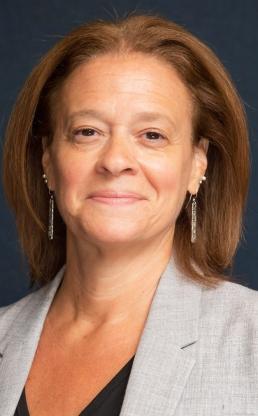
MaryJo Ginese
VP for Special Education
For years, I have heard from members about special education issues that are persistent and “hiding in plain sight” in their schools. I’m talking about things like schools having oversized self-contained classes, failing to fill a special education teacher vacancy with a special education teacher or using ICT teachers as primary sources for coverage of absent teachers.
My go-to advice was always to tell the affected staff members to file a UFT special education complaint. But the complaint process did not effectively tackle systemic issues in a school. When the complaint process produced a successful result, it was typically for one teacher or one class. Problems continued to plague other teachers and staff members in the same school, often robbing scores of students of essential services and support.
We created a special education subcommittee of the UFT Negotiating Committee to negotiate a better tool for raising and resolving special education compliance issues that are not student specific at the school level. The new contract establishes a Special Education Committee in every school. This committee, composed of a group of UFT members selected by the chapter leader, will meet at least twice a year with the principal or relevant supervisor to discuss these “hiding in plain sight” special education compliance issues. Ten days after a meeting, chapter leaders will report on the issues raised and the administration’s response in an online form in the Chapter Leader Hub, so issues can be escalated if necessary and data collected on systemic violations.
The new committees are being formed this fall. The UFT held training sessions for chapter leaders and other committee members in each borough in September and October. The Department of Education and the UFT also organized a 90-minute webinar for chapter leaders and principals to get everyone on the same page about the Special Education Committee’s roles and responsibilities.
The new contract also addresses another issue that has opened the door to violations: Special education is complicated! As I carry out my responsibilities as vice president for special education, I am regularly reminded of how little most administrators and staff know about the laws, regulations and policies affecting students with disabilities. In the absence of facts, a lot of misinformation and disinformation has been allowed to circulate in our schools. It’s no wonder some clear violations go unaddressed for years.
The UFT website’s Students with Disabilities section contains a wealth of information on special education. But nothing replaces regular professional development. I am so proud of our special education subcommittee for demanding universal training. Under the new contract, all staff must participate annually — before or on Election Day — in a training session on special education rules and regulations. The content of that training session will be jointly developed by the DOE and the union.
Students with disabilities deserve to receive an education based on their individual needs and be educated with their nondisabled peers to the degree that is feasible. The DOE consistently has not met that obligation to our students.
These new contractual rights will empower members with knowledge and give them an effective vehicle to have their voices heard. Our students will reap the benefits.